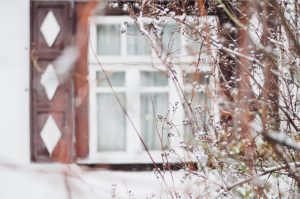 If you have an elderly loved one who lives in a nursing home in Oceanside or elsewhere in Southern California, do you need to be concerned about the risks of nursing home sexual abuse? According to a recent report from CNN News, “vulnerable seniors are being raped and sexually abused by the very people paid to care for them.” Allegations of rape and sexual abuse are arising in nursing homes and assisted-living facilities across the country. Despite the fact that it is difficult to know precisely how many cases occur each year, the CNN News report suggests that “this little-discussed issue is more widespread than anyone would imagine.”
If you have an elderly loved one who lives in a nursing home in Oceanside or elsewhere in Southern California, do you need to be concerned about the risks of nursing home sexual abuse? According to a recent report from CNN News, “vulnerable seniors are being raped and sexually abused by the very people paid to care for them.” Allegations of rape and sexual abuse are arising in nursing homes and assisted-living facilities across the country. Despite the fact that it is difficult to know precisely how many cases occur each year, the CNN News report suggests that “this little-discussed issue is more widespread than anyone would imagine.”
What are some of the significant findings in the report? What should you know about the signs and symptoms of sexual abuse in nursing homes?
Nursing Homes May be Negligent in Reporting Sexual Abuse and Assault
According to the report, nursing homes simply are not doing enough to prevent sexual assault in their facilities or taking appropriate action when they learn about injurious incidents. Are the nursing homes to blame? In some cases, the report alleges that “nursing homes and the government officials who oversee them are doing little—or nothing—to stop it.” In other situations, however, nursing homes might attempt to handle allegations of sexual abuse, but the victims’ inability to recall specifics of the incidents or to identify the abusers can make it difficult for a nursing home to determine precisely when an act of abuse occurred or who the perpetrator might be.
Yet even when a nursing home patient’s memory makes it difficult to readily ascertain the details of a sexual assault, this should not mean that the nursing homes fail to take additional steps to address the violence or to conduct timely investigations. The report suggests that, in numerous situations in which elders have complained of sexual abuse or family members have reported suspicions to the facility, “nursing homes were slow to investigate and report allegations because of a reluctance to believe the accusations—or a desire to hide them.” Police departments, according to the report, have not always backed up the nursing home patient. The report alleges that police officers who responded to reports “viewed the claims as unlikely at the outset, dismissing potential victims because of failing memories or jumbled allegations.”
The report underscores that there are systemic failures on the part of the nursing home and of law enforcement, and that we need to take steps to remedy these serious failings.
Identifying Signs of Sexual Abuse
One major problem is that state health departments and other agencies that investigate allegations of nursing home abuse are not keeping specific records about sexual abuse reports. Since 2000, there have been more than 16,000 complaints connected to sexual abuse or assault at long-term care facilities throughout the country, yet these cases may represent only a fraction of actual incidents that have been reported. Moreover, the Centers for Medicare & Medicaid keeps broader records of nursing home abuse that do not necessarily make clear when an allegation involves sexual abuse. As a result, it can be difficult to determine the rate of sexual abuse in nursing facilities without substantial research, which can limit public attention to the problem.
What signs and symptoms may be present in cases of sexual abuse in a nursing home? A fact sheet from the National Center on Elder Abuse (NCEA) cites the following:
- Bruises around a patient’s breasts or genital area;
- Unexplained sexually transmitted infections;
- Patient becoming withdrawn, or other signs of a strained or tense relationship with the caregiver; and
- Complaints of sexual abuse from the elderly patient.
If you have questions about filing an elder abuse claim, an experienced Oceanside nursing home abuse attorney can help with your case. Contact the Walton Law Firm today for more information.
See Related Blog Posts:
Nursing Home Residents May Get More Autonomy When it Comes to Care
Elder Mistreatment Education at USC
(image courtesy of Olia Gozha)
 Southern California Nursing Home Abuse Lawyer Blog
Southern California Nursing Home Abuse Lawyer Blog








